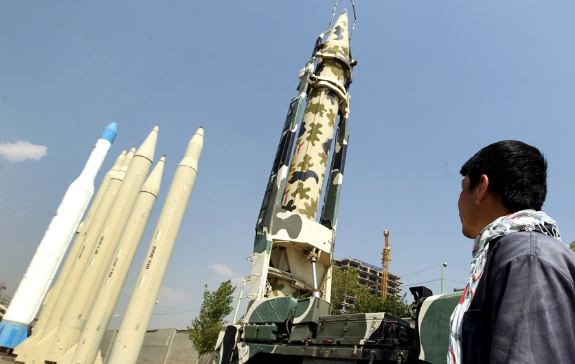Encouraged by mounting civil turmoil in Iran, the Trump administration said it will launch as yet unspecified measures that go "beyond economic sanctions" to advance its agenda of regime change in this Shia Muslim nation.
U.S. National Security Adviser John Bolton, who champions overthrowing the theocracy that has ruled Iran since 1979, said the imposition of U.S. sanctions on Iran is having a strong negative effect on Iran's economy while boosting discontent for the clerical regime among Iranian citizens.
Bolton is convinced Iran's leadership is wobbling on very shaky ground. He also claims, unbelievably, the economic pressure applied by the Trump administration isn't part of a regime change campaign.
Bolton said there shouldn't be any doubt the United States wants the row with Iran resolved peacefully, He did, however, say the U.S. is fully prepared for any contingency that Iran creates.
A massive strategic hindrance to Bolton and Trump's aim is the continuing diplomatic engagement by the European Union (EU), Russia and China in support of the Joint Comprehensive Plan of Action (JCPOPA), or the Iran nuclear deal. The U.S. withdrew from the JCPOA last May 8 because Trump disliked the deal.
Under the JCPOA, Iran agreed to eliminate its stockpile of medium-enriched uranium. It also pledged to slash its stockpile of low-enriched uranium by 98%. Iran will cut by about two-thirds the number of its gas centrifuges for a period of 13 years.
Also, Iran will only enrich uranium up to 3.67 percent over the next 15 years. Iran also agreed not to build any new heavy-water plants in the same period of time.
In response to Bolton's bellicose rhetoric, Iran responded by threatening to bombard Israel, and U.S. military units in Syria, if it were attacked by the U.S. Iran pledged not to start a war with the U.S., however.
Ahmad Khatami, a senior cleric seen close to Supreme Leader Ayatollah Ali Khamenei, said Trump knows that if if he harms his country and his state in the slightest way, the United States and Zionist Israel, its main ally in the Middle East, will be targeted. He also said the price of war will be very high for the U.S.
The Iranian Revolutionary Guard Corps (IRGC) said it can attack Israeli cities with missiles if Iran were threatened. Iran also has proxies in the region such as Hezbollah in Lebanon that can launch attacks on its behalf. IRGC said it will continue strengthening Iran's defensive capabilities and vowed not to give in to U.S. pressure to abolish Iran's ballistic missile program.
Iran, however, seems to view war as a last resort. Khamenei last week said "There will be no war." He noted Iran has never started a war. He seemed certain the U.S.won't confront Iran militarily.
Trump's campaign to isolate Iran and cripple its economy has put the old adversaries back on a collision course that European signatories to the nuclear accord fear will raise the risk of a broader Middle East war.






